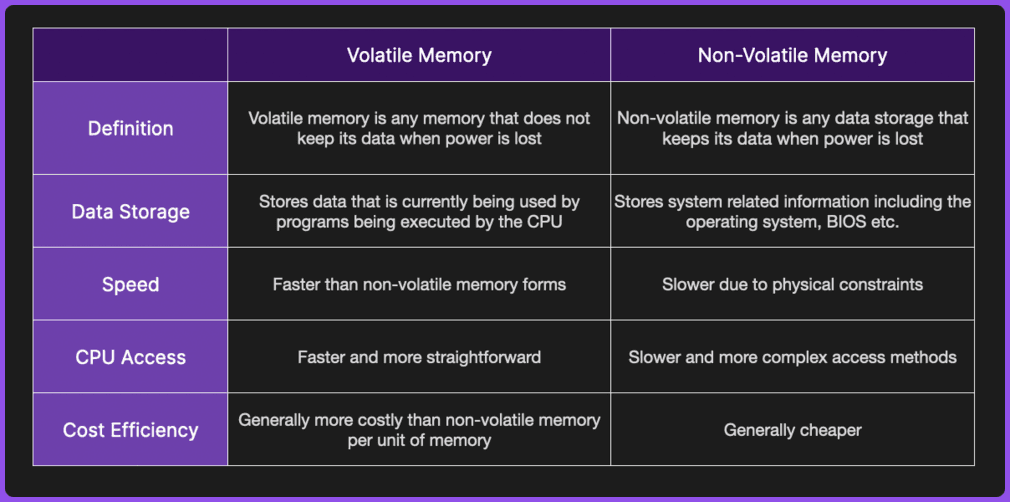Volatile vs Non-Volatile Memory | Simply Explained
Blog / Volatile vs Non-Volatile Memory | Simply Explained
So what is the difference between a process and a thread?TL;DR Summary Volatile Memory Volatile memory is any memory that does not retain its data when it loses power or the system is shut down.Common types of volatile memory include:Non-Volatile Memory Non-Volatile memory on the other hand is is any memory that does not lose its data when it loses power or the system is shut down.Common types of non-volatile memory include: Non-Volatile Memory 
- Volatile memory is any memory that does not keep its data when loses power.
- Non-volatile memory is any data storage that keeps its data even when it loses power.
Don't let one question ruin your next technical interview...
- Random Access Memory (RAM):
- Used to store data that the CPU needs quick access to while operating.
- Examples: DRAM (Dynamic RAM), SRAM (Static RAM)
- Usage: Runs everyday tasks, such as loading applications, browsing the internet, or editing a spreadsheet. Also allows quick switching among these tasks while remembering where you are in each.
- Cache memory:
- Stores frequently accessed data and instructions to speed up the data retrieval process.
- Examples: L1 cache, L2 cache, L3 cache
- Usage: Improves processing speed by providing the CPU with faster access to frequently used data and instructions, reducing the need to access slower main memory.
- Flash memory
- Can be electronically erased and reprogrammed.
- Examples: USB flash drives, solid-state drives (SSDs), memory cards.
- Usage: It is widely used for storage and data transfer in consumer devices and enterprise systems.
- Magnetic Storage
- Data is stored magnetically and is persistent through power cycles.
- Examples: Hard disk drives (HDDs) and magnetic tape drives.
- Usage: Primarily used in data centers for mass storage solutions due to their large capacity and cost-effectiveness.

About TechPrep
TechPrep has helped thousands of engineers land their dream jobs in Big Tech and beyond. Covering 60+ topics, including coding and DSA challenges, system design write-ups, and interactive quizzes, TechPrep saves you time, builds your confidence, and makes technical interviews a breeze.